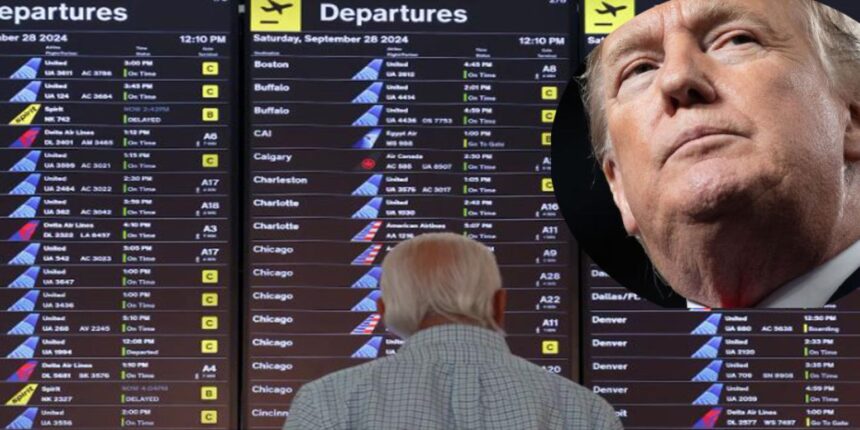The administration of U.S. President Donald Trump is reportedly considering a new travel ban that could affect citizens from multiple countries to varying degrees, according to The New York Times.
Citing anonymous officials, the report published on Friday stated that the US government’s draft list includes 43 countries, divided into three categories of travel restrictions.
This move is part of a broader effort to enhance vetting and screening procedures for travellers to the U.S.
The expansion is set to occur after a 60-day review period, during which the Secretary of State and Secretary of Homeland Security will identify countries with deficient vetting and screening information.
The travel ban, which was first introduced in 2017, initially targeted seven predominantly Muslim countries, including Iran, Iraq, Libya, Somalia, Sudan, Syria, and Yemen. The ban was later expanded to include Venezuela and North Korea, and in 2020, six additional countries were added to the list, including Eritrea, Kyrgyzstan, Myanmar, Nigeria, Sudan, and Tanzania.
The expanded travel ban is likely to have significant implications for individuals from the targeted countries, including restrictions on travel to the United States and potential delays or denials of visa applications.
However, a White House official told The Independent that no decision has been made yet.
According to officials familiar with the matter, the draft list was developed by the State Department several weeks ago and is expected to undergo changes before reaching the White House.
The Independent reported that President Donald Trump’s administration has proposed a three-tier travel ban on citizens from certain countries. The draft list is divided into three categories — red, orange, and yellow — to indicate the level of restriction.
The “red” list includes 11 countries whose citizens would be completely banned from entering the United States: Afghanistan, Bhutan, Cuba, Iran, Libya, North Korea, Somalia, Sudan, Syria, Venezuela, and Yemen.
The “orange” list names 10 countries whose citizens would face limited entry rather than a full ban. Citizens from these countries — Belarus, Eritrea, Haiti, Laos, Myanmar, Pakistan, Russia, Sierra Leone, South Sudan, and Turkmenistan — would need specific visas and be required to attend in-person interviews to obtain them.
The “yellow” list includes 22 countries, primarily in Africa, that have been given 60 days to address alleged “deficiencies” identified by the Trump administration. If these countries fail to meet the requirements, they could be moved to the red or orange lists, according to The New York Times.
On this list are Angola, Antigua and Barbuda, Benin, Burkina Faso, Cambodia, Cameroon, Cape Verde, Chad, the Republic of Congo, the Democratic Republic of Congo, Dominica, Equatorial Guinea, Gambia, Liberia, Malawi, Mali, Mauritania, St. Kitts and Nevis, St. Lucia, São Tomé and Príncipe, Vanuatu and Zimbabwe.
On January 20, Trump issued an executive order instructing cabinet members to compile a list of countries that should be subject to full or partial travel restrictions within 60 days.
This directive was based on the claim that these countries have “inadequate vetting and screening information.”
According to reports, security experts and embassy officials within the State Department’s regional bureaus are currently evaluating the proposal.
They are assessing the validity of the alleged deficiencies and considering whether there are “policy reasons” to avoid specific categorizations.














